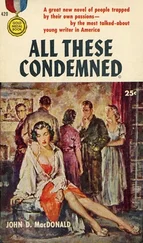Джон Макдональд - A Key to the Suite
Здесь есть возможность читать онлайн «Джон Макдональд - A Key to the Suite» весь текст электронной книги совершенно бесплатно (целиком полную версию без сокращений). В некоторых случаях можно слушать аудио, скачать через торрент в формате fb2 и присутствует краткое содержание. Город: Greenwich, Год выпуска: 1962, ISBN: 1962, Издательство: Fawcett Gold Medal, Жанр: Современная проза, на английском языке. Описание произведения, (предисловие) а так же отзывы посетителей доступны на портале библиотеки ЛибКат.
- Название:A Key to the Suite
- Автор:
- Издательство:Fawcett Gold Medal
- Жанр:
- Год:1962
- Город:Greenwich
- ISBN:978-0-449-01198-0
- Рейтинг книги:5 / 5. Голосов: 1
-
Избранное:Добавить в избранное
- Отзывы:
-
Ваша оценка:
- 100
- 1
- 2
- 3
- 4
- 5
A Key to the Suite: краткое содержание, описание и аннотация
Предлагаем к чтению аннотацию, описание, краткое содержание или предисловие (зависит от того, что написал сам автор книги «A Key to the Suite»). Если вы не нашли необходимую информацию о книге — напишите в комментариях, мы постараемся отыскать её.
A Key to the Suite — читать онлайн бесплатно полную книгу (весь текст) целиком
Ниже представлен текст книги, разбитый по страницам. Система сохранения места последней прочитанной страницы, позволяет с удобством читать онлайн бесплатно книгу «A Key to the Suite», без необходимости каждый раз заново искать на чём Вы остановились. Поставьте закладку, и сможете в любой момент перейти на страницу, на которой закончили чтение.
Интервал:
Закладка:
He ate alone at a small table in a small dining room of the hotel specializing in broiled meat. The flames under a large open broiler made a flickering light. He felt as if all reality had been distorted in some small prismatic way, just enough to make him feel wary and dubious. His hands did not look or feel like his own. The morsels of steak were alternately tasteless and delicious. He had the compulsion of all rational men to analyze, to reason, to reach conclusions — but his mind rebelled at all formal patterns. It veered, swooped, tilted — shying away from all structured devisings. He was tired and hungry and he did not want to think about Cory Barlund.
As he ate he became aware of another time in his life, long ago, when he had felt this same way, when he had experienced this same dull complexity of guilt, deceit and confusion. It took him many minutes to remember the exact incident, because he had buried it deeply, had camouflaged the place where it lay with all the devices of self-esteem.
He had been twelve years old, a tough and resolute kid, hardened in urban ways, familiar with all the survival devices a large family must use when an industrial accident has permanently maimed the father, and the compensation is a little less than adequate. He knew the protocol of the gangs and the schoolyards, the uses of valor and guile. But a duality had come into his life at that time, a troublesome thing. He had been unable to completely conceal from his teachers his quickness of mind, and the quality of his imagination. No matter how carefully he cultivated the moronic expression, the monosyllabic answer, his grades were better than he wanted them to be. And he found himself saddled with a lust for reading. Reading was particularly reprehensible in his circles, outside the family, and he had to fill his need in complete secrecy. A slightly older boy named Mark learned of Floyd’s secret vice. Mark was unacceptable. He was tall and plump. He could not run or fight or play games. He used big words, had a talent for sarcasm and responded to persecution by winding his arms around his head and squalling.
But Mark read books, and he steered Floyd toward some wonderful ones, and they would argue about what they had read. Mark also brought Floyd into a little group headed by Mr. Ellinder, an instructor in the high school, a man with a small mustache, a collection of pipes, and many shocking opinions about a lot of things Floyd had always taken for granted. They called the little group The Book League, and they had their meetings in the room over the garage where Mr. Ellinder lived with his mother and an aunt.
In that way the duality was partially resolved. Floyd could run with the pack, pretend dullness and indifference in school, and still have an outlet for expressions of the growing agility of his mind. He knew Mr. Ellinder was a great man who would be recognized by the world after his book was published. He had been working on it for a long time.
One rainy Saturday afternoon Floyd finished a book sooner than he had expected. Mr. Ellinder had loaned it to him. He wanted another book by the same man from Mr. Ellinder’s library in the room over the garage. Mr. Ellinder had promised to lend it to him next. So he walked a dozen blocks with the book tucked carefully under his raincoat. He knocked at the garage door and there was no answer. He tried the door and it was unlocked. He went in furtively and moved silently up the narrow stairs, telling himself there would be no harm in leaving the book and taking the other one, because it had already been promised to him.
He had tiptoed halfway across the upstairs room toward the bookshelves when he heard a sound to his right. He snapped his head around and stared toward the dormer alcove where stood the old couch with the Navajo blanket on it, saw Mark there, looking soft and blurred and blind without his glasses, and saw, glaring at him over Mark’s bare chubby shoulder, the fierce, indignant face of Mr. Ellinder.
“Get out!” Mr. Ellinder whispered. “Get out of here!”
Floyd had run all the way home through the rain. He lay on his bed and listened to the rain on the roof and tried not to think about anything. Mark arrived over an hour later. The rain had stopped. His mother called to him to tell him. Floyd did not ask Mark in. He went out into the small back yard.
“Paul wants to talk to you,” Mark said with a nervous defiance.
“Paul?”
“Mr. Ellinder. He’s scared you’ll tell. He wants to talk to you.”
Floyd had sobbed once, and hit Mark in the mouth as hard as he could, without warning. Mark sat down hard in the mud and began to cry like a girl. Floyd ran into the house and looked out the window and saw Mark get up and fumble around and find his glasses, wipe them on his shirt, put them on and walk away.
When he was back in his room, the room he shared with an older brother, Floyd felt very much the same way he now felt, as he finished the expensive meal in the resort hotel. Drained, dulled, guilty, mourning the loss of something which had never existed, yet half convinced he had been the agent of its destruction.
Seven
On the morning of the second full day of the convention, Hubbard was up early. When he awakened, the pumpkiny orange glow in his room made him feel a sick, breathless excitement which he forced out of his mind as quickly as possible. He told himself he would be brisk, purposeful, cold and observant. As he ate breakfast, he studied the supplementary program of workshops and clinics and selected, as being potentially most useful to him, a discussion of foreign distribution methods and problems.
He was through breakfast twenty minutes before the discussion was scheduled to start, and so he checked the desk and found an unexpectedly thick airmail letter from Jan. He thumbed it open to see if there was any enclosure, but found only the sheets she had typed on her old portable.
“Darling, The kids are in bed and the idiot box is blessedly silent and all the emergencies of the day have been coped with, I think...”
He put it back in the envelope and put the envelope in his inside jacket pocket. He had a sudden feeling of disloyalty, so strong that he felt his face grow hot. The slight bulk of the letter in his pocket was an accusatory weight.
He walked along the exhibit ramp and noticed that the AGM twins were not yet on duty. A few people, moving slowly, were tidying their displays, putting out fresh stacks of brochures. They were turning on the prism lights, the floodlights and the hooded fluorescents.
Hubbard found the far corner of the Convention Hall where the discussion would take place. Chairs were arranged in a semicircle facing the table where the panel would sit. Three men sat at the end of one aisle, talking quietly and intently. He took Jan’s letter out and began to read it where he had left off.
“I am trying to think clearly, darling, and I want to put down exactly what I mean, so there will be no chance for you to misunderstand me. We seem to have a lot of trouble with misunderstanding lately. I guess I am taking the chance of trying to clear the air. Somebody has to. We have to talk to each other when you get back here and both make an effort to really communicate. What I am trying to do is give us a start on it. I am trying to give you something you can read and re-read and think about, in terms of us. I have been bitchy lately, and maybe my reasons aren’t good, but at least I should be able to put them down calmly.
“I guess the simplest way to say it, darling, is to tell you that this isn’t the cruise I signed up for. I can adjust myself to this kind of cruise, but first I have to be sure there’s no way back to what I thought it would be.
“I hope it doesn’t sound too corny to tell you that I know I married a dedicated man. I knew that you were concerned about the advancement of human knowledge in one small area where you are an expert. I knew you were willing to teach so you’d have the opportunity to do research. I was always joyous at your enthusiasms, darling. I did not expect we would ever have very much money. I expected you to work terrible hours and forget to eat and be so distracted by your work I would have to get used to wondering whether you remembered my name.
Читать дальшеИнтервал:
Закладка:
Похожие книги на «A Key to the Suite»
Представляем Вашему вниманию похожие книги на «A Key to the Suite» списком для выбора. Мы отобрали схожую по названию и смыслу литературу в надежде предоставить читателям больше вариантов отыскать новые, интересные, ещё непрочитанные произведения.
Обсуждение, отзывы о книге «A Key to the Suite» и просто собственные мнения читателей. Оставьте ваши комментарии, напишите, что Вы думаете о произведении, его смысле или главных героях. Укажите что конкретно понравилось, а что нет, и почему Вы так считаете.
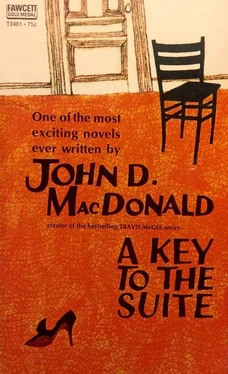
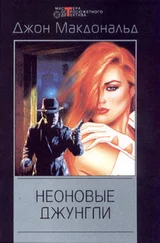
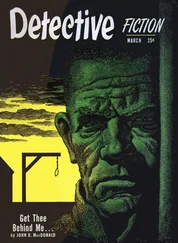

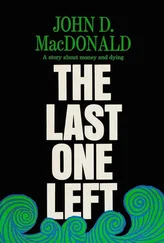
![Джон Макдональд - Wine of the Dreamers [= Planet of the Dreamers]](/books/430039/dzhon-makdonald-wine-of-the-dreamers-planet-of-thumb.webp)

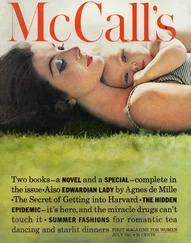
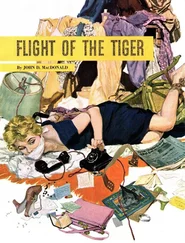
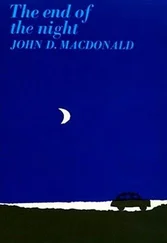
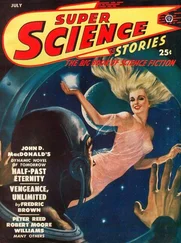
![Джон Макдональд - The Hunted [Short Story]](/books/433679/dzhon-makdonald-the-hunted-short-story-thumb.webp)
